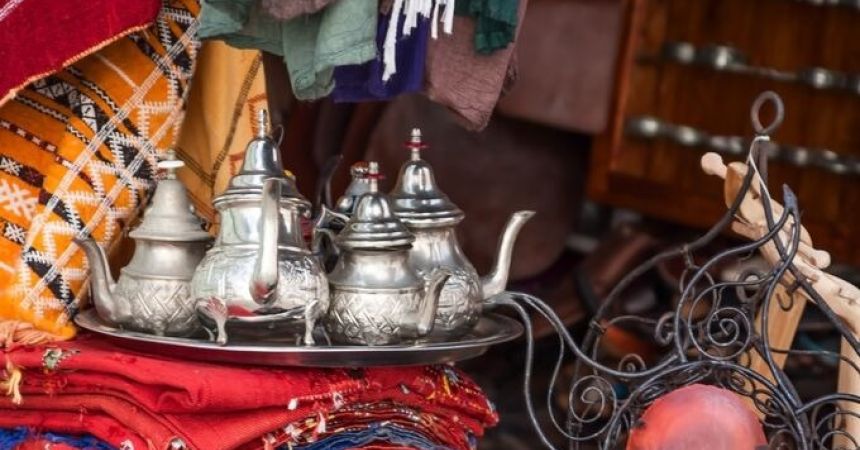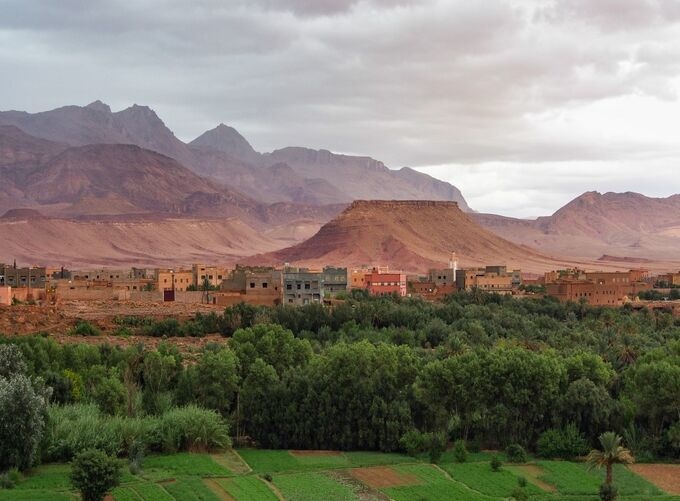
Meknes Tourism: Your Complete Travel Guide
Nestled in the heart of Morocco, Meknes is a city that often gets overshadowed by its more famous neighbors, Marrakech and Fes. However, Meknes holds its own unique charm and historical significance that make it a must-visit destination for any traveler. Known for its imperial history, stunning architecture, and vibrant culture, Meknes offers a blend of old-world charm and modern vibrancy. This comprehensive guide will help you explore the best of Meknes, from its historical landmarks to its bustling souks and everything in between.
A Brief History of Meknes
Origins and Early History
Meknes was founded in the 9th century by the Berber Meknassa tribe, from which it takes its name. Initially, it was a modest settlement, but it began to grow in importance due to its strategic location on the trade routes between the Atlantic coast and the interior of Morocco.
The Reign of Moulay Ismail
Meknes truly rose to prominence in the 17th century under the reign of Sultan Moulay Ismail, who made it his capital. Moulay Ismail is often compared to France's Louis XIV due to his grand ambitions and extensive construction projects. He transformed Meknes into a splendid imperial city, often referred to as the "Versailles of Morocco," with palaces, gardens, and monumental gates.
Modern Meknes
Today, Meknes is a vibrant city that seamlessly blends its historical heritage with modern amenities. It is a UNESCO World Heritage Site, recognized for its well-preserved historical architecture and cultural significance.
Getting to Meknes
By Air
The nearest airport to Meknes is Fes-Saïss Airport, located about 70 kilometers (43 miles) away. From the airport, you can take a taxi or a bus to Meknes. Alternatively, you can fly into Casablanca or Rabat and take a train or bus from there.
By Train
Morocco's efficient train network, operated by ONCF, connects Meknes with major cities like Casablanca, Rabat, and Fes. The train journey Casablanca to Meknes takes approximately 3 hours, while from Rabat, it takes about 2 hours.
By Bus
Several bus companies, including CTM and Supratours, offer services to Meknes from various cities. Buses are a budget-friendly option and provide a comfortable way to travel.
By Car
If you prefer driving, you can rent a car and enjoy the scenic routes to Meknes. The city's location in the northern part of Morocco makes it easily accessible by road.
Top Attractions in Meknes
Bab Mansour
One of the most iconic landmarks in Meknes is Bab Mansour, an impressive gate that serves as the main entrance to the old medina. Built in the early 18th century by Sultan Moulay Ismail, Bab Mansour is known for its intricate tile work, grand arches, and monumental size. It is considered one of the finest examples of Moroccan architecture.
Place El-Hedim
Adjacent to Bab Mansour is Place El-Hedim, a large square that serves as the heart of the old medina. The square is a bustling hub of activity, with street performers, food vendors, and market stalls. It's a great place to experience the vibrant atmosphere of Meknes and enjoy some local street food.
Dar Jamai Museum
Located on the edge of Place El-Hedim, Dar Jamai Museum is housed in a beautifully restored palace that dates back to the 19th century. The museum showcases traditional Moroccan arts and crafts, including textiles, ceramics, and jewelry. The building itself is a work of art, with intricate tile work, carved wooden ceilings, and lush gardens.
Heri es-Souani
Heri es-Souani, also known as the Royal Granaries, is a testament to Moulay Ismail's ambitious construction projects. These vast granaries and stables were designed to store food and house horses for the sultan's army. The massive vaulted halls and impressive engineering make it a fascinating site to explore.
Mausoleum of Moulay Ismail
The Mausoleum of Moulay Ismail is the final resting place of the sultan who transformed Meknes into an imperial city. The mausoleum is a sacred site, and while non-Muslims are not allowed into the inner sanctum, they can still admire the beautiful courtyards, intricate tile work, and serene atmosphere.
Volubilis
A short drive from Meknes, Volubilis is an ancient Roman city that is one of Morocco's best-preserved archaeological sites. The ruins include stunning mosaics, grand arches, and remnants of villas and temples. A visit to Volubilis provides a fascinating glimpse into Morocco's ancient history and Roman heritage.
Moulay Idriss Zerhoun
Located near Volubilis, Moulay Idriss Zerhoun is a sacred town named after Moulay Idriss I, the founder of the Idrisid dynasty and a revered figure in Moroccan history. The town is a pilgrimage site for Muslims and is known for its whitewashed houses and scenic location on a hillside. Non-Muslims are not allowed to enter the shrine but can explore the town's charming streets and enjoy panoramic views.
Exploring the Medina
The Souks
The medina of Meknes is a labyrinth of narrow alleys filled with souks (markets) selling everything from spices and textiles to pottery and leather goods. Unlike the more touristy souks of Marrakech, the souks in Meknes offer a more authentic and relaxed shopping experience. Don't forget to haggle for the best prices!
El Hedim Square
El Hedim Square, located at the heart of the medina, is a lively plaza surrounded by shops, cafes, and historical buildings. The square comes alive in the evening with street performers, storytellers, and food vendors. It's a great place to soak in the local atmosphere and enjoy some traditional Moroccan snacks.
Medersa Bou Inania
Medersa Bou Inania is a beautifully restored Islamic school that dates back to the 14th century. The medersa features stunning architecture, including intricate tile work, carved wooden ceilings, and a peaceful courtyard. It offers a glimpse into the rich educational and religious heritage of Meknes.
Day Trips from Meknes
Volubilis
As mentioned earlier, Volubilis is a must-visit site located about 30 kilometers (19 miles) from Meknes. The ancient Roman ruins are remarkably well-preserved and offer a fascinating insight into Morocco's Roman past. Meknes Guided tours are available, or you can explore the site at your own pace.
Moulay Idriss Zerhoun
Combine your visit to Volubilis with a trip to Moulay Idriss Zerhoun. The town is named after Moulay Idriss I, a revered figure in Moroccan history. While non-Muslims cannot enter the shrine, the town's picturesque streets and stunning views make it worth a visit.
Middle Atlas Mountains
The Middle Atlas Mountains, located to the south of Meknes, offer beautiful scenery and a refreshing escape from the city's hustle and bustle. The region is known for its cedar forests, charming villages, and opportunities for hiking and outdoor activities. Popular destinations in the Middle Atlas include Ifrane, often called "Little Switzerland" for its alpine architecture, and the Berber village of Azrou.
Food and Dining in Meknes
Traditional Moroccan Cuisine
Meknes is a great place to sample traditional Moroccan cuisine. Must-try dishes include:
- Tagine: A slow-cooked stew of meat, vegetables, and spices, named after the clay pot in which it's cooked.
- Couscous: A staple dish made from steamed semolina grains, often served with meat, vegetables, and a flavorful broth.
- Pastilla: A savory-sweet pie made with layers of thin pastry, filled with pigeon or chicken, almonds, and spices, and dusted with powdered sugar and cinnamon.
- Harira: A hearty soup made with tomatoes, lentils, chickpeas, and lamb, often enjoyed during Ramadan.

Street Food
For a quick and tasty bite, try some of Meknes's street food offerings. Popular options include:
- Msemen: A flaky, pan-fried flatbread, often served with honey or jam.
- Brochettes: Grilled meat skewers, usually made with lamb or chicken.
- Briouats: Fried pastries filled with meat, cheese, or vegetables.
Restaurants
Meknes has a variety of restaurants offering both Moroccan and international cuisine. Some recommended restaurants include:
- Restaurant Riad Yacout: Known for its delicious Moroccan dishes and beautiful courtyard setting.
- Restaurant Zitouna: Offers a range of Moroccan and Mediterranean dishes in a cozy atmosphere.
- Dar Sultana: A charming restaurant serving traditional Moroccan cuisine with a modern twist.
Practical Tips for Visiting Meknes
Language
Arabic and Berber are the official languages of Morocco, but French is widely spoken, especially in tourist areas. Learning a few basic phrases in Arabic or French can enhance your experience and make interactions with locals more enjoyable.
Currency
The Moroccan Dirham (MAD) is the local currency. It's advisable to carry some cash for small purchases, as not all vendors accept credit cards. ATMs are widely available in Meknes.
Dress Code
Morocco is a conservative country, and dressing modestly is appreciated, especially in rural areas and religious sites. Women should cover their shoulders and knees, and men should avoid wearing shorts in more conservative settings.
Safety
Meknes is generally safe for tourists, but it's essential to stay vigilant, especially in crowded areas and markets. Keep an eye on your belongings and be cautious when accepting offers from strangers.
Health
Drink bottled or filtered water, as tap water is not recommended for drinking. Enjoy street food from busy stalls to ensure freshness, and carry hand sanitizer for hygiene.
Bargaining
Bargaining is expected in Moroccan markets. Start by offering half the asking price and negotiate from there. Keep the process friendly and respectful.
Getting Around
Meknes is a compact city, and many of its attractions are within walking distance of each other. Taxis are also readily available and provide a convenient way to get around. Make sure to agree on a fare before starting your journey or ensure the meter is used.
Festivals and Events in Meknes
Meknes International Festival of Animated Film (FICAM)
Held annually in March, FICAM is a prominent event that attracts filmmakers, artists, and animation enthusiasts from around the world. The festival features screenings, workshops, and discussions, providing a platform for creativity and cultural exchange.
Moussem of Moulay Idriss Zerhoun
This religious festival, held in August, attracts thousands of pilgrims to the town of Moulay Idriss Zerhoun. The festival includes religious ceremonies, traditional music, and cultural performances, offering a unique insight into Moroccan spirituality and traditions.
Meknes Agricultural Fair (SIAM)
SIAM, held annually in April, is one of the largest agricultural fairs in Africa. The fair showcases Morocco's agricultural products, technologies, and innovations. It's an excellent opportunity to learn about Moroccan agriculture and enjoy various exhibitions and activities.
Sustainable Tourism in Meknes
Supporting Local Businesses
When visiting Meknes, consider supporting local businesses by shopping at local markets, dining at family-owned restaurants, and staying in locally owned accommodations. This helps boost the local economy and promotes sustainable tourism.
Responsible Travel
Respect the local culture and environment by following responsible travel practices. This includes dressing modestly, avoiding single-use plastics, and being mindful of your environmental impact.
Cultural Sensitivity
Show respect for local customs and traditions by being culturally sensitive. This includes asking for permission before taking photos of people, learning a few basic phrases in the local language, and respecting religious sites and practices.
Plan Your Morocco Holiday: Desert to Coastline
Meknes is a hidden gem in Morocco that offers a rich tapestry of history, culture, and natural beauty. From its impressive architectural landmarks and bustling souks to its serene gardens and historical sites, Meknes provides a unique and authentic Moroccan experience. Whether you're exploring the medina, visiting ancient Roman ruins, or savoring traditional Moroccan cuisine, Meknes is sure to leave you with unforgettable memories.



